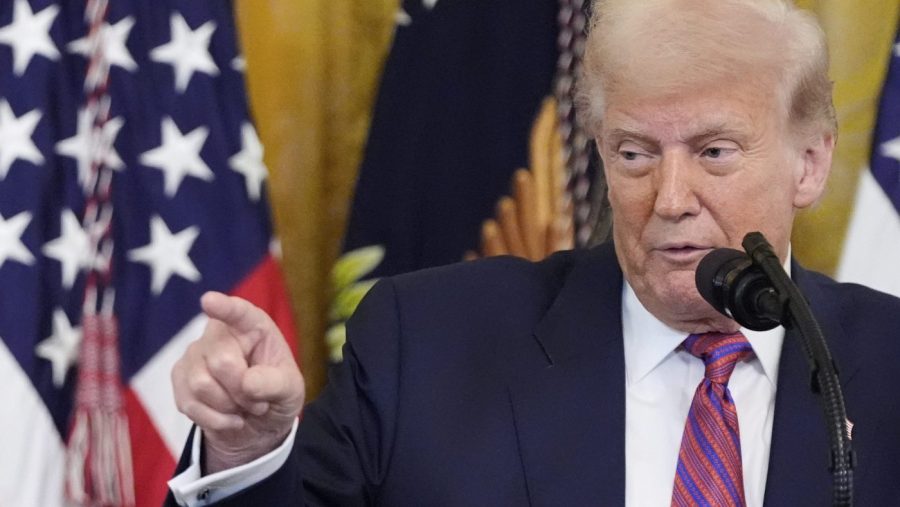President Donald Trump has established himself as an exceptionally powerful figure within the Republican Party, demonstrating significant influence on Capitol Hill. Six months into his second term, Trump has effectively advanced his legislative agenda, garnering support even amid reservations from some party members. His ability to instill fear of primary challenges through social media platform Truth Social has further solidified his grip on the party.
Since assuming office for the second time, Trump has seen a rapid pace of legislative accomplishments. His “big, beautiful bill” has gained traction faster than many lawmakers anticipated, with the Senate confirming 96 civilian nominees in a record timeframe. The Brookings Institution reports that this rate of confirmations surpasses that of three of the past four administrations, including Trump’s initial term.
Trump’s influence extends beyond legislative matters. He leveraged pressure on Speaker Mike Johnson during the January leadership election, pushing Republican representatives to align with his agenda. Notably, he succeeded in passing the first rescissions package since 1992, a feat he attempted but failed to achieve during his first term in 2018.
Despite some controversial actions, including a global trade dispute with traditional allies and a partnership with Elon Musk’s Department of Government Efficiency to reorganize federal agencies, Trump has faced minimal pushback from Republican lawmakers. An anonymous senator remarked on the culture of fear that prevails in Congress, indicating that Trump’s priorities are viewed as untouchable, even as some members privately question aspects of his agenda.
As Trump’s approval ratings have dipped in recent public polls, particularly over his administration’s management of Jeffrey Epstein-related files, he remains largely unchallenged on Capitol Hill. Stephen S. Smith, a political science professor at Washington University in St. Louis, noted that Trump’s willingness to threaten retribution against dissenters is a rarity among recent presidents.
Republican Senator Tommy Tuberville emphasized Trump’s extraordinary influence, asserting that he has never witnessed such control in his political career. Tuberville has warned those skeptical of Trump within the Senate Republican conference to “get in line or be prepared to face a primary challenge” in 2026. He remarked that the swift passage of Trump’s legislative initiatives, including the “One Big, Beautiful Bill Act,” underscores the effectiveness of Trump’s leadership.
Senator Thom Tillis, who deviated from Trump’s agenda, faced significant political consequences when Trump criticized him on social media, which ultimately led Tillis to announce he would not seek reelection. This incident illustrates the extent of Trump’s power to influence political careers within his party.
The recent passage of Trump’s rescissions package, which faced initial resistance, further exemplifies his control over Republican lawmakers. Ross K. Baker, a political science professor at Rutgers University, compared Trump’s approach to that of former President Franklin D. Roosevelt, emphasizing the power of fear as a motivating factor for congressional compliance.
The Senate has also rapidly confirmed Trump’s more contentious Cabinet nominees, including Pete Hegseth for the Pentagon, Tulsi Gabbard for national intelligence, and Robert F. Kennedy Jr. for the Department of Health and Human Services. Initial hesitations from prominent senators quickly dissipated under pressure from Trump’s supporters, showcasing the significant influence he wields over his party.
As Trump continues to navigate his second term, the dynamics within the Republican Party suggest a consolidation of power that may shape the political landscape for years to come, reinforcing his status as a formidable force in American politics.
